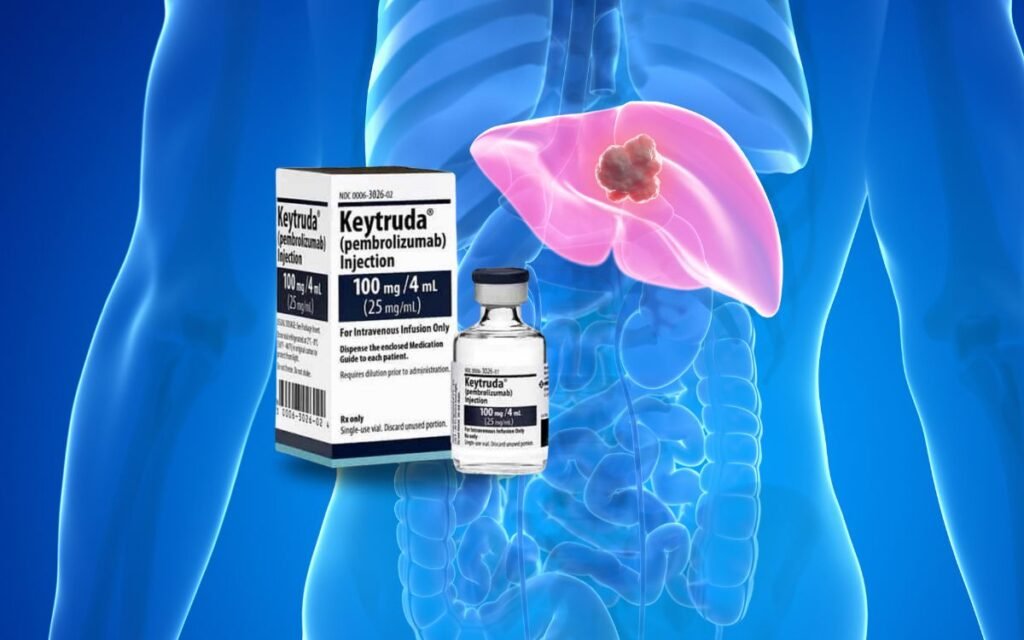Merck’s Keytruda has received FDA approval to treat locally advanced unresectable or metastatic biliary tract cancer, alongside gemcitabine and cisplatin chemotherapy, marking its entry into this challenging cancer space. This approval signifies Keytruda’s sixth FDA nod for gastrointestinal cancer treatment.
The FDA’s decision was based on data from Merck’s Phase 3 KEYNOTE-966 trial, demonstrating that the combination of Keytruda and chemotherapy significantly extended patient survival compared to chemotherapy alone.
Patients in the Keytruda-chemo group had a median survival of 12.7 months, in contrast to 10.9 months for those receiving solo chemotherapy. This combination therapy reduced the risk of death by 17% compared to chemotherapy alone, according to the study’s findings. Keytruda-treated patients also experienced a longer median duration of response, with 9.7 months compared to 6.9 months for those on solo chemotherapy.
Also Read: Keytruda: Merck’s Breakthrough Cancer Drug With Mixed Results At ESMO
Merck’s head of late-stage oncology clinical development, Marjorie Green, M.D., expressed pride in providing a new treatment option for biliary tract cancer patients, particularly those ineligible for surgery and facing limited treatment options.
Biliary tract cancers encompass a group of rare and highly aggressive malignancies that affect the liver, gallbladder, and bile ducts. Most patients are diagnosed at an advanced stage, where the five-year survival rate is merely 2% to 3%. The overall survival rate for all stages of biliary tract cancers stands at only 9% to 11%, according to Merck.
When comparing Keytruda’s results with Imfinzi’s TOPAZ-1 trial, Keytruda’s survival outcomes closely matched Imfinzi, with both achieving around 12.8 months. However, Keytruda did not meet the mark in terms of disease progression or death, showing a 14% reduction compared to Imfinzi, which achieved a 25% reduction. These differences may be attributed to the varying trial populations, with KEYNOTE-966 having a higher proportion of non-Asian patients, possibly making its results more globally representative.





























